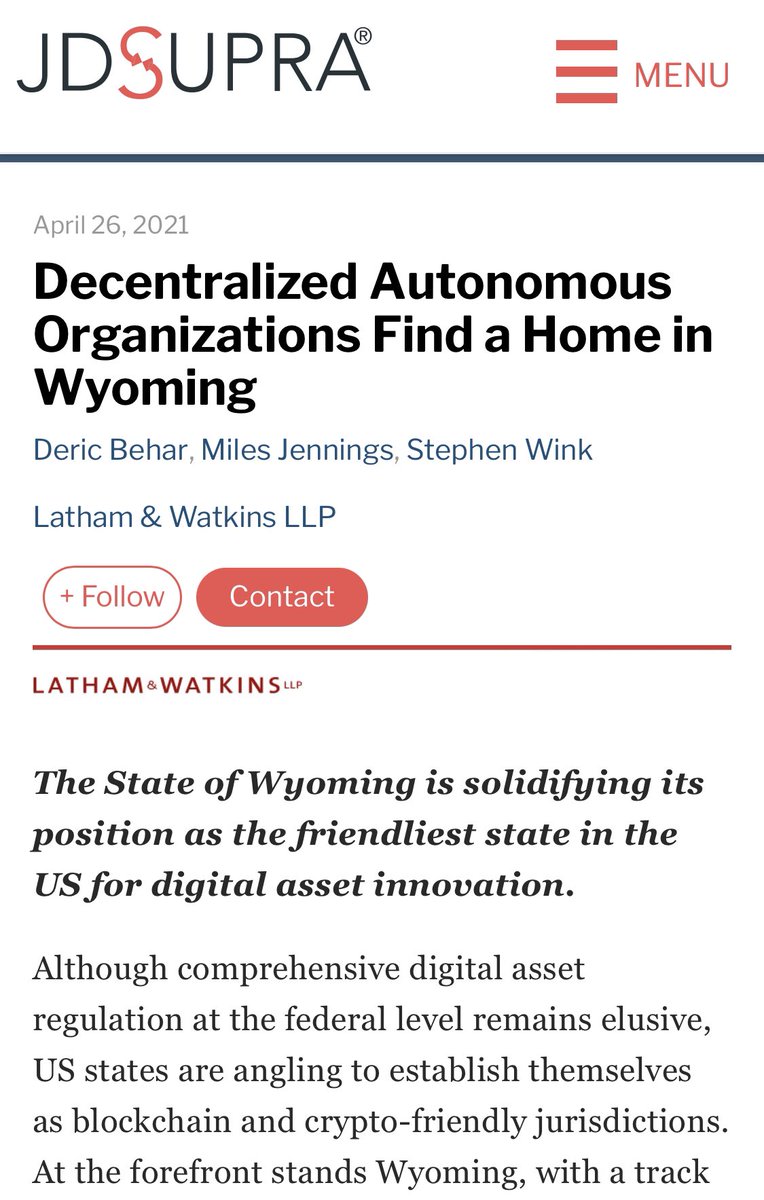
Buy Miami, short SF.
Or, if you believe in the turnaround, go long SF.
Citycoins will express people's faith in city policy. As does emigration. Vote with ballot, and now also with wallet and feet.
Or, if you believe in the turnaround, go long SF.
Citycoins will express people's faith in city policy. As does emigration. Vote with ballot, and now also with wallet and feet.
https://twitter.com/mauprieto/status/1400630432241160203
Municipal bonds have existed forever. But they are traded in inaccessible venues and don't use modern tech.
The concept of municipal equity, or a natively digital cognate thereof, is new.
What if city residents, working together, could build value & share upside?
The concept of municipal equity, or a natively digital cognate thereof, is new.
What if city residents, working together, could build value & share upside?
The advantage for every city to legalize citycoins is simple: they are a new source of funds for a city.
Figure out the split. The city government gets X% of the coins. Then allow N private operators to build competing city coins with different features. And let market decide.
Figure out the split. The city government gets X% of the coins. Then allow N private operators to build competing city coins with different features. And let market decide.
One vision for citycoins is that they start out generic but then end up differentiating on a per-locale basis. Think about how BNB started as an ERC-20 and then added features over time.
Another part of the vision is that they start aligning all residents with each other, and with the city as a whole.
The best leaders of the city will be those who increase the value of the citycoin for all residents. This may be an alternative to other revenue measures.
The best leaders of the city will be those who increase the value of the citycoin for all residents. This may be an alternative to other revenue measures.
You can imagine citycoin leaderboards for public-spiritedness. Who did the most tasks for citycoins to help the city, from stadium cleanup to elder care?
You can express long-term commitment to a city via timelocked funds on-chain. A 10 year timelock for city managers & mayors?
You can express long-term commitment to a city via timelocked funds on-chain. A 10 year timelock for city managers & mayors?
The remote economy means every city is now in competition with every other city.
Citycoins express this reality. Residents can look at trends in citycoin prices as an important signal of whether cities are waxing and waning. And become hodlers in distant cities from afar.
Citycoins express this reality. Residents can look at trends in citycoin prices as an important signal of whether cities are waxing and waning. And become hodlers in distant cities from afar.
Eventually, you may be able to timelock funds in a citycoin as an alternative to municipal levies.
Because it's all on-chain, this also gives you a digital passport.
Log into any physical or digital city service IF you are holding at least $100 of a citycoin for 10 years.
Because it's all on-chain, this also gives you a digital passport.
Log into any physical or digital city service IF you are holding at least $100 of a citycoin for 10 years.
Citycoins do something interesting: they align residents within cities and encourage economic competition between cities.
This is superior to the pre-pandemic model of political sclerosis within cities and relatively low migration to non-superstar cities.
This is superior to the pre-pandemic model of political sclerosis within cities and relatively low migration to non-superstar cities.
https://twitter.com/balajis/status/1216773910534021120
Citycoins also do something else: by giving a realtime mark-to-market on city performance as a whole, they select for leaders who are competent capital allocators.
A true CEO of the city will boost the value of every resident's stake.
A true CEO of the city will boost the value of every resident's stake.
In less receptive areas, you could combine citycoins with the shadow mayor concept I discussed with @tferriss.
Essentially, set up a parallel public service org that's wholly opt-in. Start providing community services. And have people support via coin.
tim.blog/2021/03/25/bal…
Essentially, set up a parallel public service org that's wholly opt-in. Start providing community services. And have people support via coin.
tim.blog/2021/03/25/bal…
• • •
Missing some Tweet in this thread? You can try to
force a refresh












